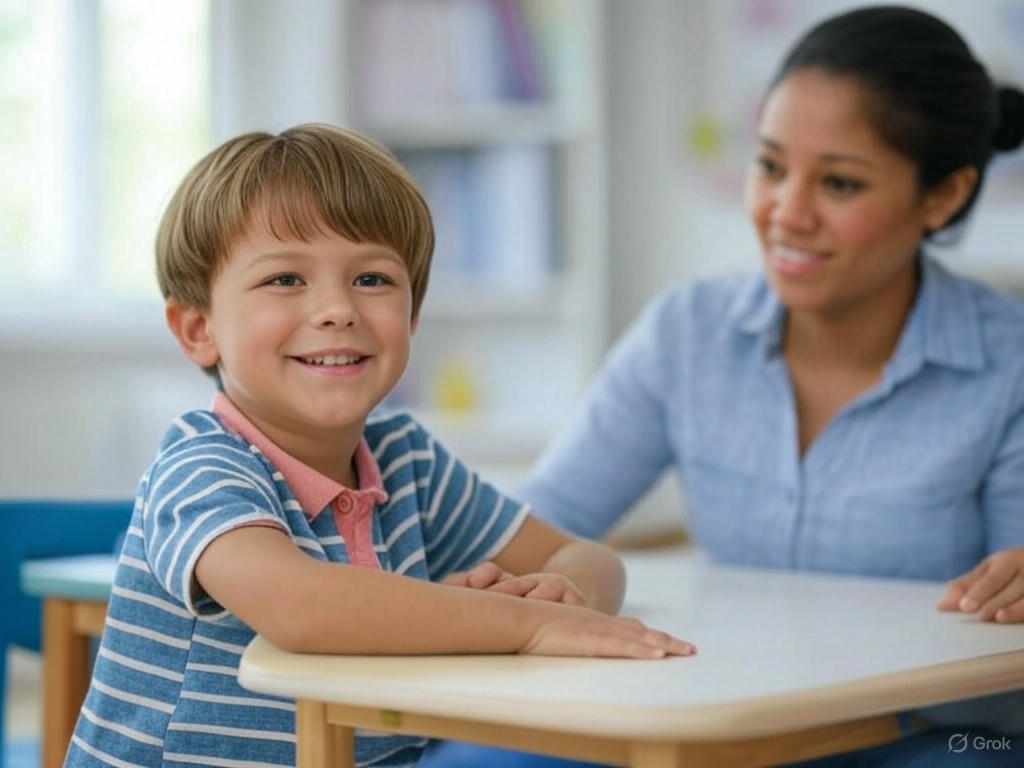What Is a Developmental Milestone? A Comprehensive Guide
Understanding Developmental Milestones: A Comprehensive Overview
Developmental milestones are specific skills or abilities that most children achieve by a certain age. These milestones serve as benchmarks for tracking a child’s growth and development across various domains, including physical, cognitive, social, emotional, and language skills.
For example, a baby learning to crawl or a toddler saying their first word are considered developmental milestones. These achievements are not only exciting for parents but also critical indicators of a child’s overall health and development.
Understanding what a developmental milestone is can help parents and caregivers identify whether a child is progressing as expected or may need additional support. Milestones are typically categorized by age and developmental area, making it easier to monitor progress.
By recognizing these milestones, parents can take proactive steps to encourage their child’s growth and address any concerns early. This ensures that children receive the support they need to thrive.
Why Are Developmental Milestones Important for Growth?
Developmental milestones are essential for understanding a child’s growth trajectory. They provide a framework for assessing whether a child is developing skills at an appropriate pace compared to their peers.
For instance, milestones help identify strengths and areas where a child may need extra attention. Early detection of developmental delays can lead to timely interventions, which are crucial for improving outcomes.
Moreover, milestones offer insights into how different areas of development—such as physical coordination, cognitive abilities, and social skills—are interconnected. A delay in one area may impact progress in others.
Tracking milestones also empowers parents and educators to create supportive environments that foster learning and growth. This is especially important in inclusive education settings, where children with diverse needs can benefit from tailored support.
Key Areas of Development in Childhood Milestones
Childhood milestones span several key areas of development, each contributing to a child’s overall well-being. These areas include physical, cognitive, social and emotional, and language development.
Physical milestones focus on motor skills, such as crawling, walking, and grasping objects. These skills are foundational for exploring the world and gaining independence.
Cognitive milestones involve problem-solving, memory, and learning abilities. For example, recognizing shapes or solving puzzles are cognitive achievements that reflect mental growth.
Social and emotional milestones include forming relationships, expressing emotions, and developing empathy. These skills are vital for building connections and navigating social environments.
How Developmental Milestones Are Categorized by Age
Developmental milestones are typically grouped by age ranges to reflect the expected progression of skills. Common categories include infancy (0-12 months), toddlerhood (1-3 years), preschool age (3-5 years), and school age (6+ years).
During infancy, milestones include smiling, babbling, and rolling over. These early achievements lay the groundwork for future development.
Toddlers often reach milestones like walking, speaking simple sentences, and showing curiosity about their surroundings. These skills mark significant strides in independence and communication.
Preschoolers develop more complex abilities, such as counting, drawing shapes, and interacting with peers. By school age, children refine these skills and build on them through academic and social experiences.
Physical Milestones: Tracking Motor Skills and Coordination
Physical milestones are among the first developmental achievements parents notice. These milestones include gross motor skills like crawling, walking, and running, as well as fine motor skills like grasping objects and drawing.
For example, a baby typically starts crawling between 6-10 months and walking by 12-15 months. These milestones indicate the development of muscle strength and coordination.
Fine motor skills, such as holding a crayon or stacking blocks, usually emerge between 12-24 months. These skills are essential for tasks like writing and self-care activities later in life.
Parents can encourage physical milestones by providing safe spaces for movement and offering toys that promote coordination, such as balls or building blocks.
Cognitive Milestones: Building Problem-Solving and Learning Abilities
Cognitive milestones reflect a child’s ability to think, learn, and solve problems. These milestones include recognizing objects, understanding cause-and-effect relationships, and developing memory skills.
For instance, a toddler may learn to stack blocks in a specific order or identify colors. These achievements demonstrate growing mental capabilities.
By preschool age, children often begin to understand basic math concepts, follow multi-step instructions, and engage in imaginative play. These milestones are critical for academic readiness.
Parents can support cognitive development by reading to their child, encouraging exploration, and providing puzzles or games that challenge their thinking.
Social and Emotional Milestones: Developing Relationships and Empathy
Social and emotional milestones involve forming relationships, expressing feelings, and understanding others’ emotions. These skills are crucial for building connections and navigating social situations.
For example, infants often smile or respond to familiar faces, while toddlers begin to show empathy by comforting others. Preschoolers typically learn to share and take turns during play.
By school age, children develop deeper friendships and understand complex emotions like jealousy or pride. These milestones help them interact effectively with peers and adults.
Parents can foster social and emotional growth by modeling positive behavior, encouraging group activities, and discussing feelings openly with their child.
Language Milestones: Progressing Communication Skills
Language milestones track a child’s ability to understand and use words to communicate. These milestones include babbling, speaking first words, and forming sentences.
For instance, most infants begin babbling around 4-6 months and say their first word by 12 months. By age 2, toddlers often combine words into simple phrases like “want cookie.”
Preschoolers typically expand their vocabulary and learn to use complete sentences. By school age, children refine their grammar and storytelling abilities.
Parents can encourage language development by talking to their child frequently, reading books together, and introducing new words during everyday activities.
Signs of Delayed Development: When to Seek Professional Guidance
While every child develops at their own pace, significant delays in reaching developmental milestones may indicate underlying issues. Common signs include difficulty walking, limited speech, or challenges in social interactions.
For example, if a toddler is not walking by 18 months or speaking by age 2, it may be time to consult a pediatrician or developmental specialist.
Early intervention is key to addressing developmental delays. Professionals can provide therapies or strategies to help children catch up in areas where they are lagging.
Parents can also explore resources like disability screening or inclusive education programs to support their child’s unique needs.
Supporting Your Child’s Development: Tips for Encouraging Milestone Achievement
Parents play a vital role in helping children achieve developmental milestones. Simple activities like reading, playing, and talking can significantly impact a child’s growth.
For physical milestones, encourage movement through activities like crawling races or playing catch. For cognitive milestones, introduce puzzles or educational games that challenge problem-solving skills.
Social and emotional milestones can be supported by arranging playdates or discussing feelings during storytime. Language milestones benefit from frequent conversations and exposure to new words.
Remember, every child is unique. Celebrate their achievements and provide a nurturing environment that fosters growth across all developmental areas.
FAQs About Developmental Milestones
- What is a developmental milestone?
- A developmental milestone is a skill or ability that most children achieve by a certain age, such as walking, talking, or forming relationships.
- Why are developmental milestones important?
- Milestones help track a child’s growth and identify areas where they may need additional support or intervention.
- What should I do if my child shows signs of delayed development?
- If you notice delays, consult a pediatrician or specialist for guidance. Early intervention can improve outcomes significantly.
- How can I support my child’s developmental milestones?
- Engage in activities that promote physical, cognitive, social, emotional, and language skills, such as reading, playing, and talking.



